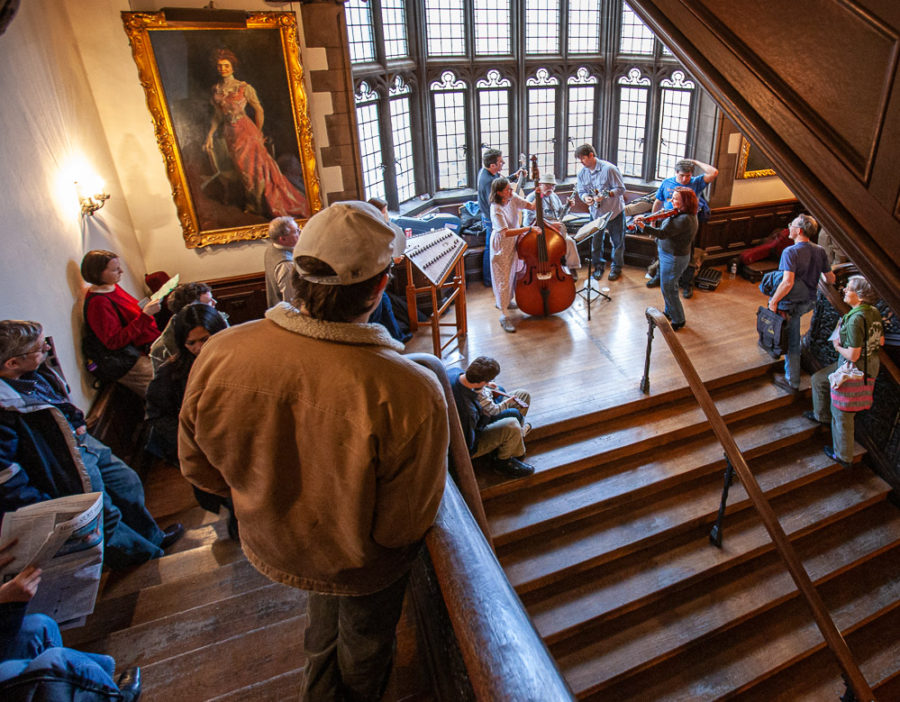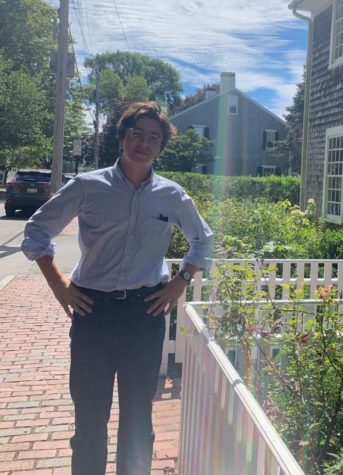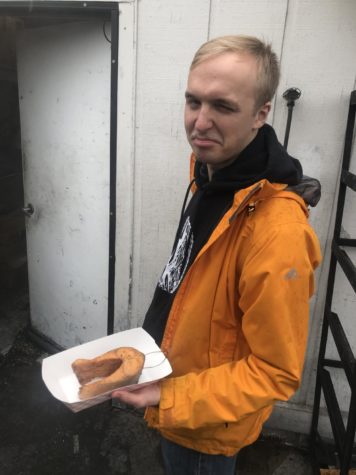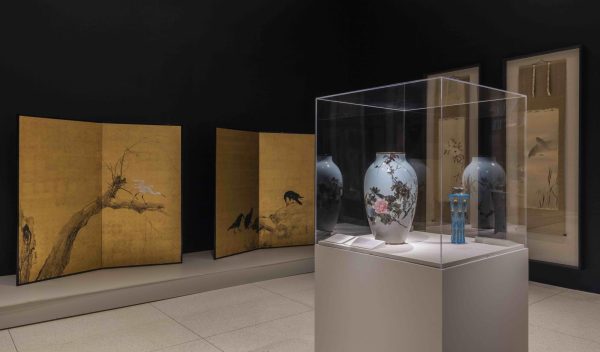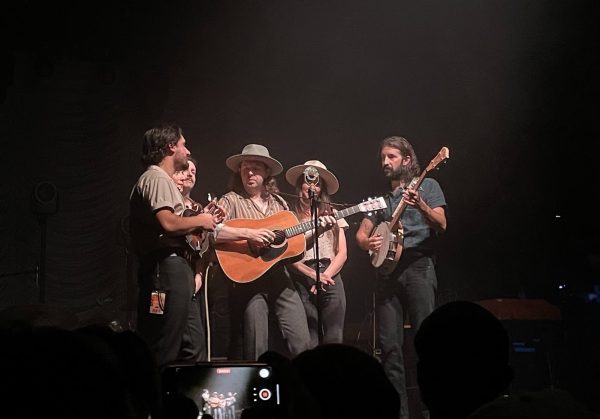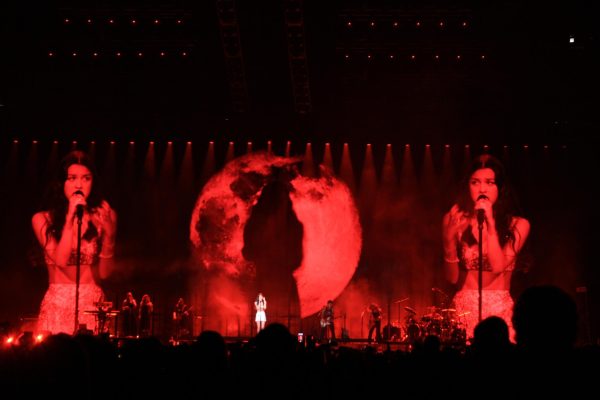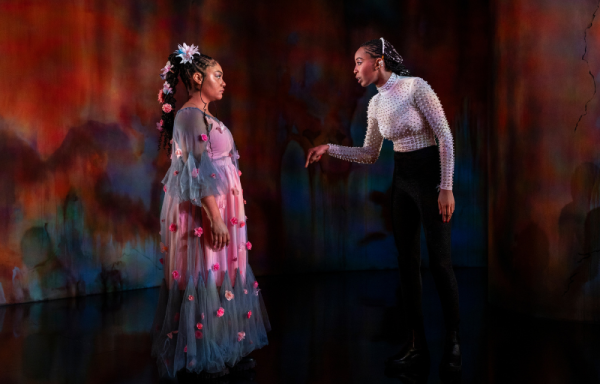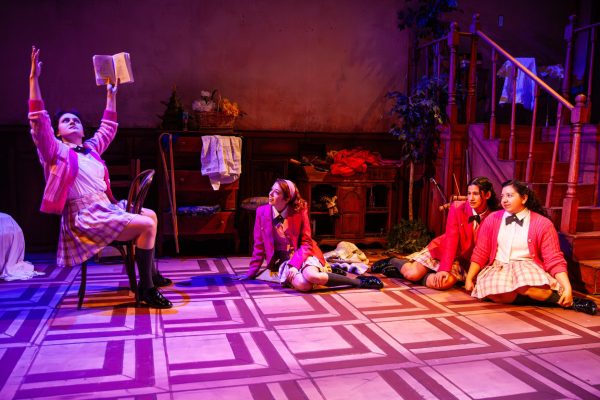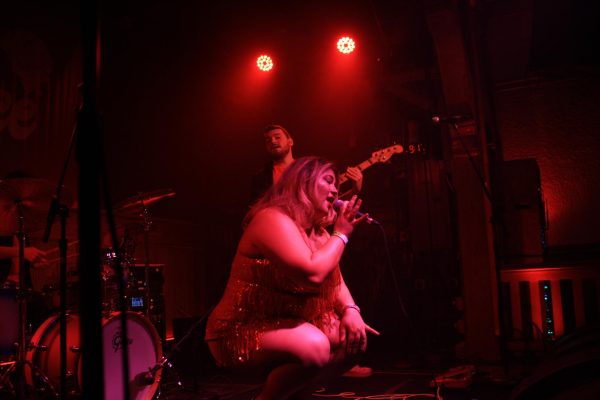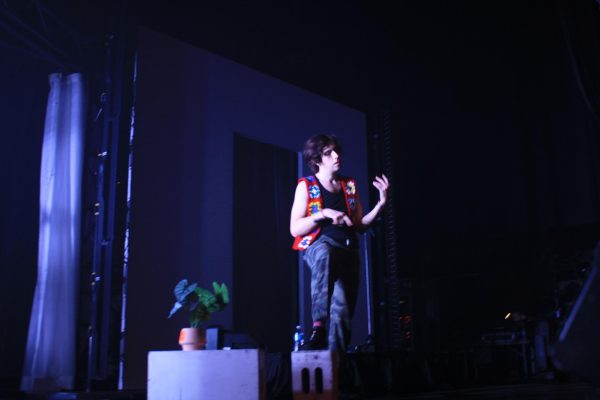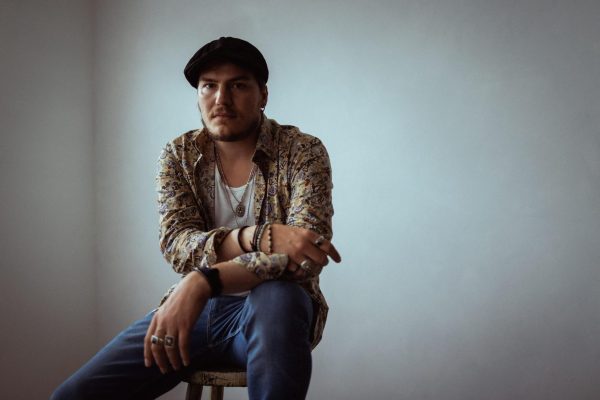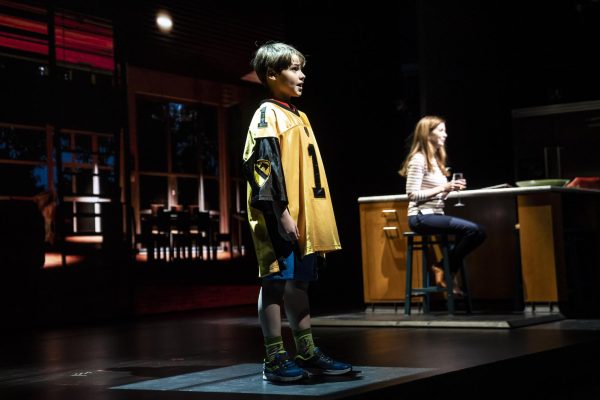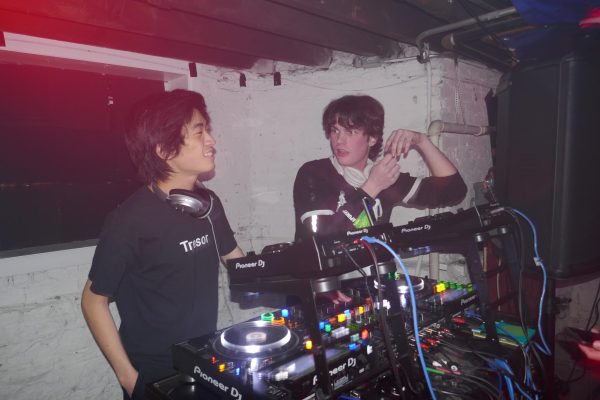University Folk Festival Returns for 63rd Year
This year’s Folk Festival will feature Chicago’s “preeminent Mexican fiddler” and the Eastern European tunes of the gadulka.
A Folk Festival jam session of years past.
January 17, 2023
On February 10 and 11, the University of Chicago Folk Festival will strum back onto the stage at Mandel Hall, continuing a decades-long tradition which brings some of the most well-known (and obscure) traditional folk acts from across the country to Hyde Park every year.
Among the can’t-miss acts, according to third-year and festival co-president Nick Rommel, are the Po’ Ramblin’ Boys, a bluegrass group that’s coming up from Tennessee in a refurbished 1965 General Electric tour bus, and Juan Rivera, whom Rommel described as the “preeminent Mexican fiddler” in the Chicago area.
The Folklore Society, which organizes the annual festival, is one of the oldest registered student organizations on campus. They hosted the first Folk Festival in 1961 at the height of the national folk revival. In search of authenticity, Rommel explained, the Festival’s organizers turned down newfangled singer-songwriters in favor of old-time folk musicians who stuck to traditional tunes, such as performers like Muddy Waters and famed mandolinist Bill Munroe. Bob Dylan asked to perform but was deemed inauthentic and turned down, Rommel said.
Today the Folk Fest still swears by its authenticity. It avoids singer-songwriters and features only traditional music—its lineup lists each performer along with their style, such as “Classic Bluegrass” or “Louisiana Cajun.”
However, where it once held strictly to American music, the Festival has opened itself up to more global traditions in recent years. Among the performers this year are Donka and Nikolay Kolev, a Bulgarian immigrant couple that performs in a traditional Eastern European style. Nikolay plays the gadulka, an instrument Rommel described in some detail: “You play it like a cello, but it’s the size of a violin and you hold it to your chest,” he said. “It doesn’t look anything like a cello. I think it has three strings.”
This year, Rommel hopes that the international lineup will “appeal to a more general sense of authenticity and craft that people are looking for these days.”
In addition to concerts on Friday and Saturday night, touring musicians, lecturers, and local performers not featured in the official evening line-up will host a suite of public workshops and jam sessions in Ida Noyes on Saturday, from 10 a.m.–5 p.m. These will include dance lessons and discussions and even a workshop hosted by Hyde Park’s quilting society.
The festival concerts begin at 8 p.m. on Friday, February 10, and at 7:30 p.m. on Saturday, February 11. Tickets are $5 for students, $20 for seniors, and $30 for the general public. The lineup can be found at www.uofcfolk.org or on the University of Chicago Folk Festival Facebook page.



